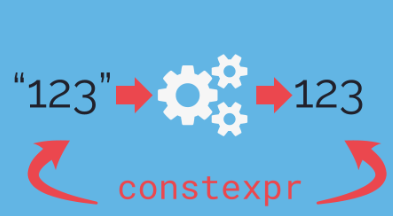 Thanks to the powerful
Thanks to the powerful constexpr keyword and many enhancements in recent C++ standards, we can now perform a lot of computations at compile time. In this text, we’ll explore several techniques for parsing integers, including the “naive” approach, C++23,from_chars,std::optional, std::expected, and even some upcoming features in C++26.
Parsing Numbers At Compile Time with C++17, C++23, and C++26
by Bartlomiej Filipek
From the article:
Why at compile time?
While it may sound like a theoretical experiment, since C++11 we can shift more and more computations to compile-time. Here are some key areas and examples where
constexprcan be beneficial:
- Building lookup tables
- Working with embedded resources (like fonts or bitmaps)
- Parsing configuration strings
- Regular Expressions at compile time
- Working with bit flags and bits
- UB program verification (
constexprcontext guarantees no UB in your code)- and many more… see Your New Mental Model of constexpr - Jason Turner - CppCon 2021 - YouTube or Lightning Talk: Memoizing Constexpr Programs - Chris Philip - CppCon 2021 - YouTube or Anything can be a Constexpr if you try hard enough - Zoe Carver - CppCon 2019 - YouTube
Starting easy from C++17
Starting with C++17, we are now capable of writing complex
constexprfunctions. However, our ability to do so is still limited by the range of algorithms available in that context. Luckily, with the introduction ofstring_viewin that version of C++, there is no longer any need to work with “raw”const char*buffers.

Add a Comment
Comments are closed.